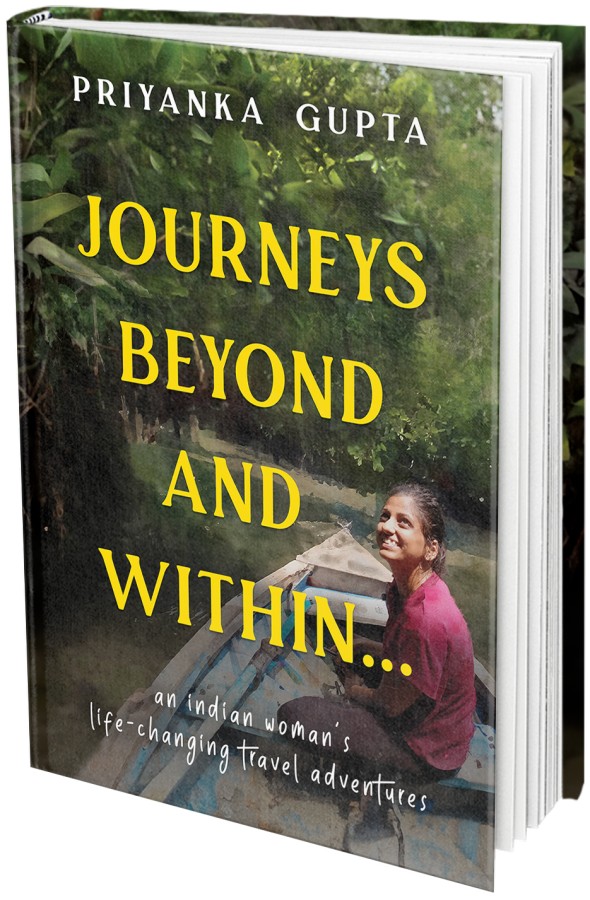People Judge Others. We Are Always Judging Someone or the Other. But Do We Need To?
Six months ago, I had just come to Auroville. It is an experimental community on the east coast of India near Pondicherry. A collaborator of the philosopher Sri Aurobindo Mirra Alfassa had a vision for a place on earth where men from all countries will live in harmony as equals. Set up by the followers of Mirra Alfassa, whom they called Mother, Auroville is supposed to be the manifestation of that vision.
If the people of Auroville, Aurovillians, live in peace and treat each other equally is a report for another rainy day. For now think of the place, once an arid sandy land, as a lush green forest dotted with houses, cafeterias, and community spaces nestled in their large green gardens. People from fifty-nine countries call Auroville home.
I had only been in a cottage in the forest zone of Auroville that my partner and I ended up renting for two months for a week. One day we were at an Auroville restaurant. While my partner sat at a table taking calls and finishing work, I strolled on the ochre land circumscribing the eatery. The sun was about to set. Behind me, a diverse crowd of Indians and foreigners chatted, ordered tacos and teas, and petted free dogs.
From the opposite side came a woman clad in a shirt-pant. She was in the same posture — her right hand outstretched and its fist closed upon something — as I had seen her pace on cafeteria rooftops, on the paths, and while eating. I smiled at her, and she stopped to talk. When she asked about our professions, I told her my partner has a remote job and I’m a writer.
“Oh, so you do content writing. That’s what they say, right?”
“I write technical papers, articles, and stuff. But mainly I’m a personal growth and travel blogger. I also write short stories, memoirs, and poetry.”
She stayed quiet for a few seconds and added,
“The digital nomads. I find them very weird. Since morning until 11 pm they sit in front of their laptops. They go out two three times only to eat. Give all their money to guesthouses. Don’t even walk. You know Auroville is best known for walking.”
There it was. She had said it. When we talked about my host she said, “oh she has put up her house for house sitting and is going out of India again! She is always doing this.”
I haven’t spoken to that woman since then. What can I say to someone whose disdain for computers and people who work on them dripped from her being? She seemed to resent my host for shooting off on vacations, too.
Another time it was my host who laughed derisively at the mention of my partner taking calls in our car. She didn’t provide us with internet and our phones received signal near the parking away from the house only. When the small, used gas cylinder she had put under a slab in our cottage got over in two weeks, she said, “It’s already over? You guys are using too much gas so you will have to pay for it.” The rent — which was supposed to include gas — was already high, and I got conscious of cooking once a day, and not even on all days. “People who come here don’t stay at home so much, you know, they go around and don’t use so much gas.” She raised her eyebrows.
Those days we also took our car into the muddy narrow lanes of Auroville that regularly fill with water. Maneuvering the car wasn’t as much of a problem as not knowing that most Aurovillians hate cars and their drivers.
Every time we drove, a man or woman on a bike, scooter, or bicycle would chide us to unblock their way, to be careful because their guest had fallen with her scooter, to close the gate, to tell them who we were and where he had come from, or rolled their eyes and mumbled or shouted at us to slow down while speeding off so they didn’t have to hear our response. That was after we had smiled, were slow, on the side, and paused to give others as much space as we could.
We tried understanding the contempt toward car owners beyond the concern for energy conservation. When we asked our host, a long-time resident of Auroville, she said she used to warn the visitors in the introduction to Auroville that Aurovillians are rude. From then on, we rolled up our glasses, put on a stern countenance, and kept a list of responses on the tip of our tongue if anyone dared to rebuke us.
But mainly we rented a moped, learned to talk back, and smiled less. I also worked on increasing my self-worth. We were going to need all the confidence one can muster.

Now in another guesthouse, one day I asked a guy if he was doing alright. We had lived in the same two-story building for five months but had not exchanged more than hello or good evening. I didn’t expect him to stop to talk. But he paused under his staircase on the open compound and said, “I have been good. You guys must be doing a lot of online work!”
Everyone in the guesthouse has seen my partner sit on the veranda adjoining our room all day from Monday to Friday (last year I sat out on the balconies of all Himalayan homes we stayed at). I told the guy I am a writer so even though I write often in longhand I prefer a computer else I have to type out a lot later. He added that dictation also works well for writing. When I asked if he writes, too, he said people had been asking him to write.
But that was before he told me he had been circumcised as a child without anesthesia but had no memory of it, that coronavirus spread through telephone line because people weren’t traveling, and asked us if we did anything around in Auroville. He wanted to confirm his opinion of us that we worked on our computers and didn’t participate in the community. And so I asked him what did he do.
“I manifest people’s dreams.” He said and questioned me, “are you living your heavenly life?” Squeezing the cardboard box I was going to keep in our car in the parking, I let out a puff of air. The chickpeas I had kept to boil on the stove whistled me back. I replied, “I am living my heavenly life.”
But that wasn’t enough for him. He asked, “Are you sure? Because,” he left out a puff of air and bent his knees a little, and continued, “this was just a replay of your reaction at my question, by the way. You don’t have to be honest with me but be honest to yourself.”
The pressure cooker screamed again. The rufous treepie croaked so breathlessly as if someone had stolen her eggs. “I am. I don’t have to lie to anyone.” Then he widened his eyes and asked, “Are. you. living. your. life. joyously. from. moment. to. moment?”
I didn’t tell him he was being intrusive and arrogant by asking such personal questions the first time we ever spoke. I wanted to walk away but I didn’t.
Instead, I said, “Once I wasn’t happy. Then I constructed a life around what was important to me. Now I am happy and wouldn’t change anything. So that question “Am I living my heavenly life” doesn’t make sense to me anymore (in our first chat at eleven in the morning with the day long ahead of me).”
He seemed to take that and started talking about the present over the past and the future and that we are driven by thought and feeling so breathlessly I couldn’t make him stop without risking being rude for at least twenty more minutes at which point we parted ways. [I suggested to him the science book How Emotions Are Made but he said he reads very simple things only.]
Another long-term guest in the next room had asked my partner if his neck did not pain from all the sitting and asked him to stand straight and observed him as if he was a monkey in a science experiment. We had met five minutes ago.
Both men didn’t work on the computer but sat looking into screens smaller than ours with large headphones wrapped around their heads. One had been visiting Auroville when the lockdown happened, missed his repatriation flight to his home in Canada due to miscommunication which he took as a sign to continue manifesting other’s dreams in India, and told me he would go back only to sort his finances and say goodbye to everyone. The other was from Israel, a cloth designer, and now lived in New York but was visiting India with his girlfriend. He said he loved nature, when I mentioned the kingfisher who chirped behind our rooms he said, “oh yes I love that blue bird,” and smoked pot all day only to get up to walk to his scooter.
They were judging me and I was judging them and this realization saddened me.
That was the day I penned down a draft on the judgment digital nomads or anyone who works on a computer face. I couldn’t tell any of those people that working at one’s computer is a matter of pride, not disdain. That with or without a computer, blessed are those who care for something so much they fuel it with their eyes, hours, and soul. But I couldn’t imagine how those who work for money rather than the joy of working would take the searing arrows of opinions.
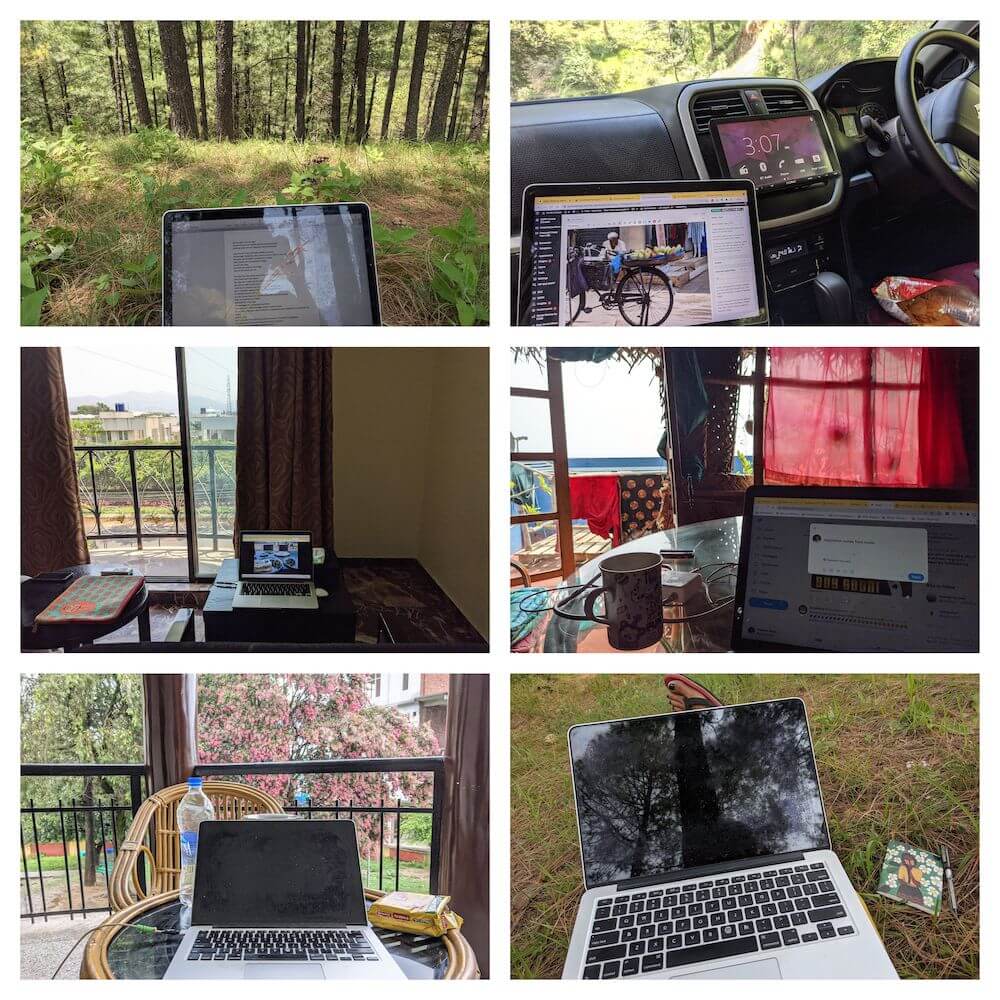
Whom Do We Judge?
The judgment of the world is not limited to digital martyrs. A city dweller is judged for crowding the city, the rich are judged for their silk, and the poor are judged for their crackled skin. We appreciate the villagers for living in nature, cooking on mud stoves, and eating home-grown organic vegetables. But if they come to the city and throw garbage wherever they like, we forget to take their context in mind, and rather than showing them the better way, like we expect them to show us, we smirk at them, abuse them, and send them back to where they come from.
Once I heard a woman in a flowing dress at the luggage belt at the Mumbai airport shouting at a scattering of people that they were in Mumbai and couldn’t keep on with what they had been doing at home. Breaking the queue, the folks had stridden towards the exit gates.
Contempt of the world for the world surpasses all logic.
Whether we are in communities, big cities, workspaces, social organizations, homes, mountains, yoga retreats, villages, or underwater, each of us is judging others all the time. Mostly, we aren’t listening to the other person, we aren’t looking, we aren’t comprehending, we are forming our conclusions about someone who is either brave enough to open up to us or is unfortunate enough to fall in front of our eyes.
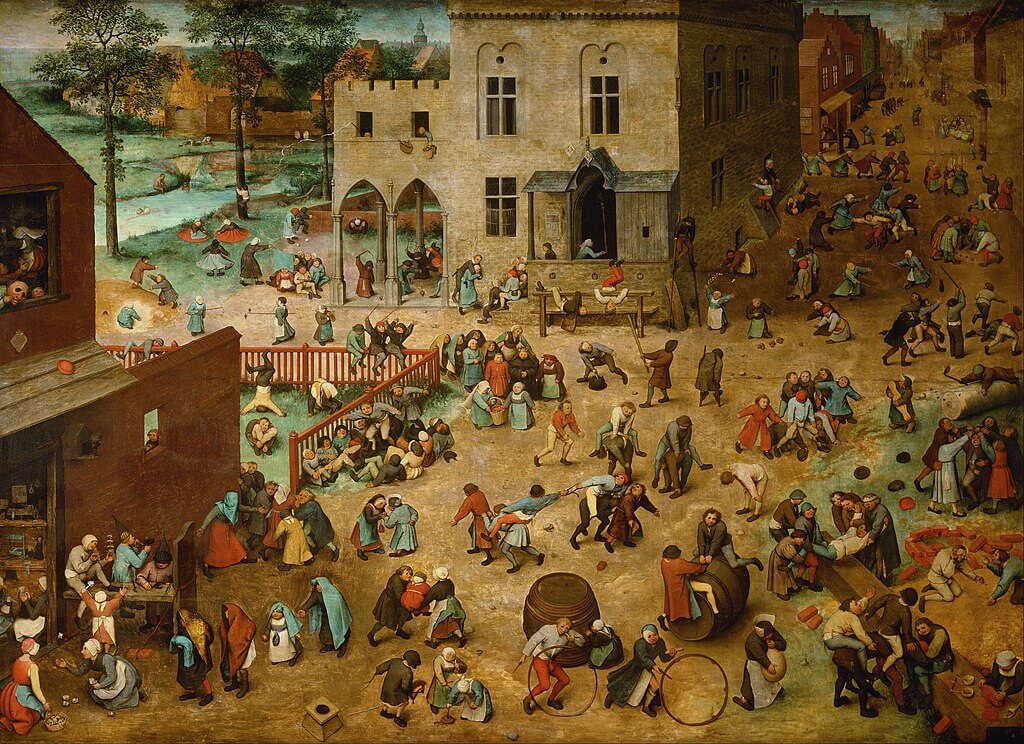
Well how can we make sense of everything that goes around us in this crazy life? [Image Credit: Pieter Brueghel the Elder, Public domain, via Wikimedia Commons]
Why Do People Judge Others All The Time?
Human beings need to make sense of the constant humdrum around them to feel secure (I talk about this in detail in my article on understanding our emotions). But because we cannot afford the time and energy to understand everything all the time, we ignore a little, try to understand some, and accept the rest in whatever way we find convenient.
To make our life easy, we automatically judge people we don’t know so well. When we see them doing something we don’t get, rather than saying, “what the hell…”, we say, “oh, he must be a moron for trimming that jasmine bush.” We see someone in leather pants on a bike on an Indian summer day, and rather than questioning if it was the laundry day, we smirk, “he must be out of his wits.”
But the people we know don’t escape our scrutinizing either. We jump to conclusions about them because, again, we need to make sense of their ways. We want to ensure they still align with us. Are they good or bad? Right or wrong? A friend who ticks off a checklist of places to see on his trip, a guesthouse employee who slacks in the manager’s absence, or a colleague who treats male and female team mates differently are all judged by me without me even knowing it.
In my article on personal development, I talk about our sticky notes — values that are important to us — rules we live by — things we measure our lives’ worth with. If you look closely, you will find that we not only measure ourselves against our values, we weigh everyone on our metric system.
When we feel a friend has become too much to take or too brute or disrespectful, what we are trying to say is how opposite we believe in and like or how different we are from her. We can count people we love and adore on the tip of our fingers because the human beings they are, what they stand for, how they put up a fight, or let go mirror our own selves.
But apart from us, no one is living by our values. So we get perplexed by one and all. In our confusion, we deem people stupid, ignorant, malignant, vicious, wasteful, narcissistic, and so on. We get jealous of those who possess what we measure a good and successful life with. We feel threatened when we come across someone who seems like a living contradiction of our beliefs and values; we would have hated to be her so we hate her. We worry those nasty habits and choices would barge into our life and make it lesser than what we want it to be. What we are afraid of being ourselves, we judge about others.
Once, I found myself exulting in the realization of someone else’s faults. If they were so dishonest, immature, and concrete-friendly, I must be better, happier, and closer to nature than anyone else. I was the best being ever to walk this planet earth.
What more can judgment do than make us feel better about ourselves?
As Virginia Woolf said in A Room of One’s Own, “Life for both sexes — and I looked at them, shouldering their way along the pavement — is arduous, difficult, a perpetual struggle. It calls for gigantic courage and strength. More than anything, perhaps, creatures of illusion as we are, it calls for confidence in oneself. Without self-confidence we are as babes in the cradle. And how can we generate this imponderable quality, which is yet so invaluable, most quickly? By thinking that other people are inferior to one self. By feeling that one has some innate superiority — it may be wealth, or rank, a straight nose, or the portrait of a grandfather by Romney — for there is no end to the pathetic devices of the human imagination — over other people.”
Our judgments of others are about us, not about the people we judge. And our opinions benefit us, not them. Those who judge us are also reflecting on their life, not ours.
How funny it is to realize that we expect human beings — with completely varied temperaments, upbringings, circumstances, and baggage of judgment that was forced onto them — to behave like us. Much of what we do, how we think, and what we like is given to us by the place, culture, and family we are born in. Whether we like it or not, we would have done similar things as those we judge if we were in their shoes.
But when it comes to coming to conclusions, we don’t think of all that. And we pay a heavy price for our carelessness.
Why Should We Stop Judging People?
Quick judgments about others stress our superiority and are more negative than positive. The disgraceful assumptions about others take over the nooks and corners of our minds. After every judgment that we thought cost us nothing, we are hungrier for the instant pleasure of feeling better than others, feel disconnected from everyone around us, and are more than ever aware of being judged all the time.
Soon it becomes all about us. The things we observe about others are written on the faces that look at us — we assume they are also judging us through our values. We must be looking fat, ugly, and idiotic. We fill in between lines, pauses, and gazes.
We reduce our self-worth, ruin relationships, and stay away even from people we might have liked. Our assumptions can prevent us from exploring a different way of life, and make us resentful, arrogant, narcissistic, and jealous. And we find ourselves stuck in a judgment loop (the kind which stops us from living a fulfilled and healthy life).
When we extrapolate someone’s opinions onto them the next time or on to someone similar to them, we might think we are preparing ourselves for the future. But we are just making ourselves more conscious.
I drive more freely when there is no one around. Otherwise, I get conscious of taking the perfect left turn or driving through a narrow alley under people’s judgmental gaze. I stop wagging my hands up and down in the park if there are other walkers. But when I am alone I am Miss Jumping Jack.
In that jungle cottage when I heard my host nearby, I used to get up and walk around as if I hadn’t been on my laptop. I boast about living in small rural places because I don’t want anyone to know me as someone disconnected from the ground.
Our judgmental attitude is what makes us quite different people when we are alone versus in company. Unrestricted, sneering, and unhelpful remarks and looks that escape us in an unconscious moment can anger, upset, and disquiet others.
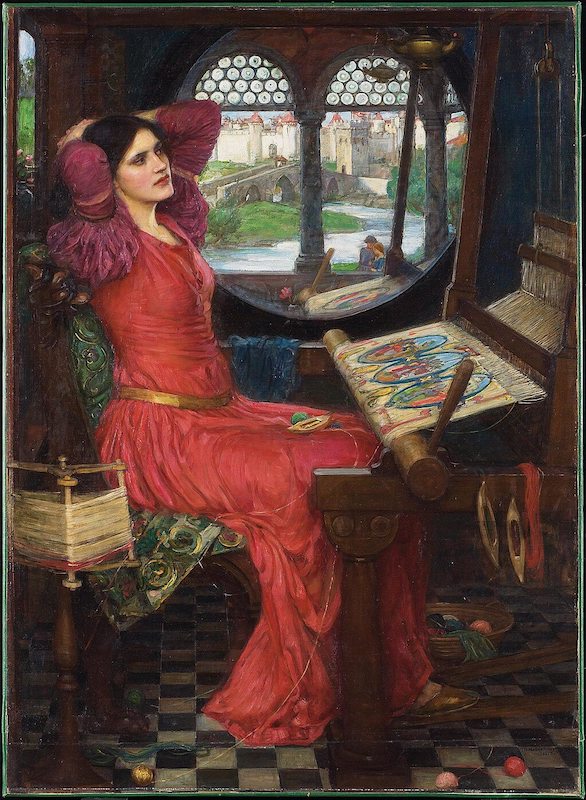
the comfort in solitude [Image Credit: John William Waterhouse, Public domain, via Wikimedia Commons]
But Can We Stop Judging Others? How to Stop Judging People?
We can’t stop coming to conclusions about people because we need to go about our day while grasping the world through our senses and not by deep diving into everything. Imagine if you had to understand why every child wanted what it wailed for or why the children played their silly games or why the ones who sat quietly didn’t scamper about. Moving around in our world is not different from being at a child’s fifth birthday party.
But to make our life easy, we don’t have to come to negative, hateful, or inappropriate conclusions about others. When we are building the narrative to prove how someone else is beneath us, we should catch ourselves in the act. Ask yourself if your judgment is sensible. To break the pattern of selling negative arguments, pause, realign, and consciously take the decision of not deriding someone just because you can.
In the cue, pattern, and reward cycle of this habit of derision, we can get our reward through ourselves. We would not need to judge someone negatively if we genuinely accept who we are and love and appreciate ourselves. We don’t evaluate others as good because we believe that if we deem them so great, we would become lesser than them. And how can that be? How can anyone else be cooler, kinder, more beautiful, more artistic, or funny?
But if we are improving ourselves and feeling happy and proud of who we are, if we are already cool, kind, beautiful, artistic, and funny enough, then they can be too. Rather than lowering someone else, we can raise ourselves to come at par with our standards.
And when we would be satisfied with our being, we would judge ourselves lesser, would be less harsh on ourselves, and, thus, would be less harsh and less judgmental about others, too. Now we have enough compassion, empathy, and acceptance to spare.
But Some People Surely Seem to be Driven By Wrong Values. I Don’t Even Have the Right to Judge Them?
Much like we cannot assess how happy someone else is, we cannot tell what is good for her or not. Our principles cannot be applicable to anyone else.
Not everyone assigns value to working hard. Not everyone cares to read. Not everyone wants to walk barefoot on the earth. And that is okay.
Apart from their temperaments, people draw values from their culture, family, partners, colleagues, their own experience, and a plethora of other things. And most people’s sticky notes are working out well for them. Even the people we pity for not having a generous, joyous, or experience-driven life, have the life they want or are working toward it. They just don’t want the things we care about.
Unless someone’s actions are hurting themselves or others, they are fine. So it is up to us as a community to mind our business and accept others as they want themselves to be and not how we want them to be. All we can do is make people think for themselves without judging them. Their internal workings don’t concern us. What concerns us is how we measure our life, if we have the right values for our growth, and whether we are raising ourselves up to our benchmarks. And they will do the same.
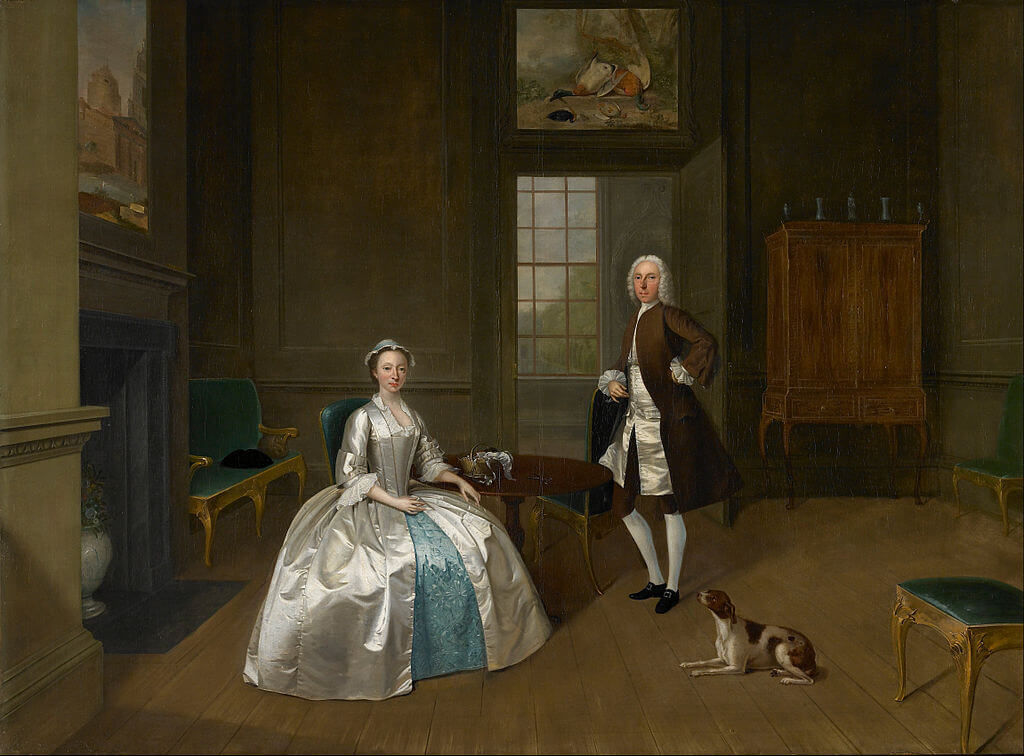
Why do you care if their dresses seem too cumbersome? You see what I just did there? [Image Credit: Arthur Devis, Public domain, via Wikimedia Commons]
Liberated
When we stop ourselves from forming ugly opinions about others, we move to understanding and maturity. We can say, “oh, this I don’t get” or “they might have a reason I don’t know anything about” or “oh well, at least it works for them.”
And instead of them, it is us whom we free from the tug of judgment that knowingly or unknowingly has been making us dance to its tune. Now we are liberated, confident, and pleasant. The world is, finally, not a bad place to be. At last, we can think of living in harmony.
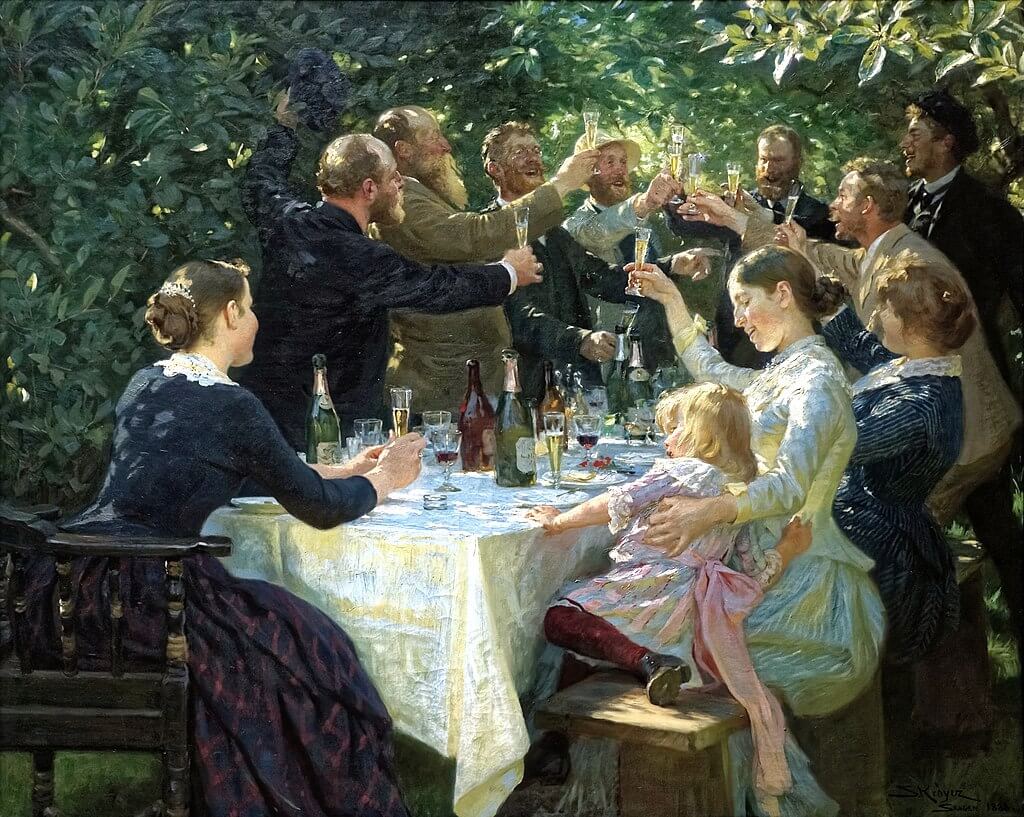
Feature Image Courtesy: Carl Bloch, Public domain, via Wikimedia Commons
Do you judge people, too? Or do you always act as if you are under someone’s gaze? Share your experiences with me below.
*****
My much-awaited travel memoir
Journeys Beyond and Within…
is here!
In my usual self-deprecating, vivid narrative style (that you love so much, ahem), I have put out my most unusual and challenging adventures. Embarrassingly honest, witty, and introspective, the book will entertain you if not also inspire you to travel, rediscover home, and leap over the boundaries.
Grab your copy now!
Ebook, paperback, and hardcase available on Amazon worldwide. Make some ice tea and get reading 🙂
*****
*****
Want similar inspiration and ideas in your inbox? Subscribe to my free weekly newsletter "Looking Inwards"!


